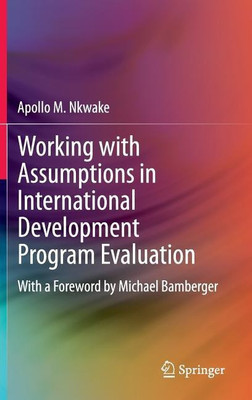Working with Assumptions in International Development Program Evaluation(English, Hardcover, Nkwake Apollo M.)
Quick Overview
Product Price Comparison
?A major reason complex programs are so difficult to evaluate is that the assumptions that inspire them are poorly articulated. Stakeholders of such programs are often unclear about how the change process will unfold. Thus, it is so difficult to reasonably anticipate the early and midterm changes that need to happen in order for a longer-term goalto be reached. The lack of clarity about the "mini-steps" that must be taken to reach a long-term outcome not only makes the task of evaluating a complex initiative challenging, but reduces the likelihood that all of the important factors related to the long term goal will be addressed. Most of the resources that have attempted to address this dilemma have been popularized as theory of change or sometimes program theory approaches. Although these approaches emphasize and elaborate the sequence of changes/mini steps that lead to the long-term goal of interest and the connections between program activities and outcomes that occur at each step of the way, they do not do enough to clarify how program managers or evaluators should deal with assumptions. Assumptions, the glue that holds all the pieces together, remain abstract and far from applicable.In this book the author tackles this important assumptions theme head-on-covering a breadth of ground from the epistemology of development assumptions, to the art of making logical assumptions as well as recognizing, explicit zing and testing assumptions with in an elaborate program theory from program design, implementation, monitoring and evaluation.


